Jeep Avenger vs Lotus Eletre - Differences and prices compared
Compare performance (156 HP vs 918 HP), boot space and price (21900 £ vs 85700 £) at a glance. Find out which car is the better choice for you – Jeep Avenger or Lotus Eletre?
Costs and Efficiency:
Looking at overall running costs, both models reveal some interesting differences in everyday economy.
Jeep Avenger has a convincingly advantage in terms of price – it starts at 21900 £, while the Lotus Eletre costs 85700 £. That’s a price difference of around 63763 £.
In terms of energy consumption, the advantage goes to the Jeep Avenger: with 15.50 kWh per 100 km, it’s significantly more efficient than the Lotus Eletre with 22.50 kWh. That’s a difference of about 7 kWh.
As for range, the Lotus Eletre performs clearly perceptible better – achieving up to 570 km, about 170 km more than the Jeep Avenger.
Engine and Performance:
Power, torque and acceleration are the classic benchmarks for car enthusiasts – and here, some clear differences start to show.
When it comes to engine power, the Lotus Eletre has a decisively edge – offering 918 HP compared to 156 HP. That’s roughly 762 HP more horsepower.
In acceleration from 0 to 100 km/h, the Lotus Eletre is decisively quicker – completing the sprint in 3 s, while the Jeep Avenger takes 9 s. That’s about 6 s faster.
In terms of top speed, the Lotus Eletre performs noticeable better – reaching 265 km/h, while the Jeep Avenger tops out at 194 km/h. The difference is around 71 km/h.
There’s also a difference in torque: Lotus Eletre pulls significantly stronger with 985 Nm compared to 260 Nm. That’s about 725 Nm difference.
Space and Everyday Use:
Cabin size, boot volume and payload all play a role in everyday practicality. Here, comfort and flexibility make the difference.
Both vehicles offer seating for 5 people.
In curb weight, Jeep Avenger is decisively lighter – 1180 kg compared to 2565 kg. The difference is around 1385 kg.
In terms of boot space, the Lotus Eletre offers significantly more room – 688 L compared to 380 L. That’s a difference of about 308 L.
In maximum load capacity, the Lotus Eletre performs slightly better – up to 1532 L, which is about 255 L more than the Jeep Avenger.
When it comes to payload, Jeep Avenger hardly perceptible takes the win – 502 kg compared to 485 kg. That’s a difference of about 17 kg.
Who wins the race?
The Lotus Eletre proves to be outperforms in nearly all aspects and therefore becomes our DriveDuel Champion!
Lotus Eletre is the better all-rounder in this comparison.
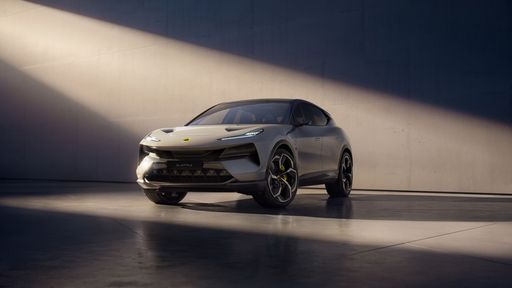
Lotus Eletre
Costs and Consumption
View detailed analysis
Engine and Performance
View detailed analysis
Dimensions and Body
View detailed analysis
Jeep Avenger
The Jeep Avenger shrinks Jeep's boxy, adventurous styling into a city-friendly electric crossover that looks just as at home on tight streets as it does on muddy weekend lanes. It's a savvy pick for drivers who want go-anywhere attitude without the truck-size ego — practical inside, lively around town and ready to tackle a bit of rough stuff when the mood strikes.
details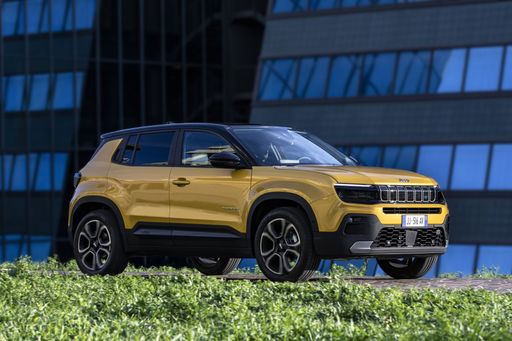
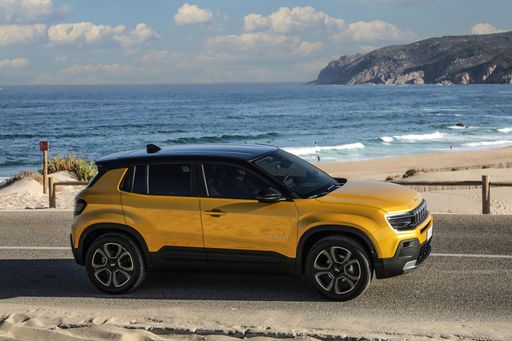



Lotus Eletre
The Lotus Eletre is a bold, electric SUV that finally lets Lotus step into the luxury EV arena without losing the brand's famed focus on razor-sharp handling and driver engagement. Inside, it pairs a futuristic, tech-heavy cabin with surprising comfort and poise — think of a sports car in evening wear, ready to sprint yet polite enough for the school run.
details
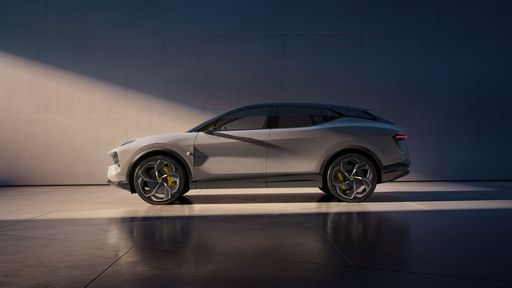
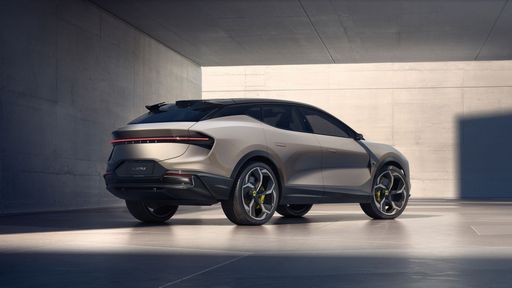
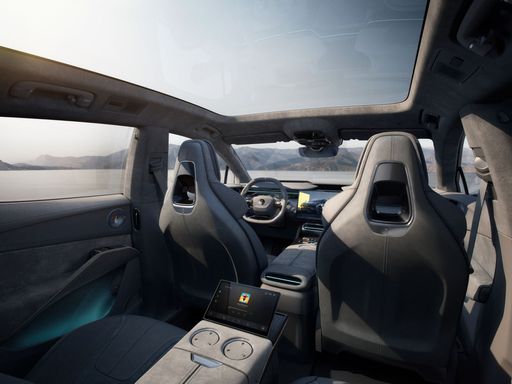
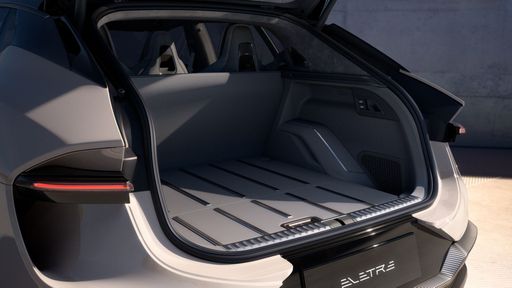

|

|
|
|
|
Costs and Consumption |
|
|---|---|
|
Price
21900 - 36900 £
|
Price
85700 - 138000 £
|
|
Consumption L/100km
4.9 - 5.7 L
|
Consumption L/100km
-
|
|
Consumption kWh/100km
15.50 kWh
|
Consumption kWh/100km
22.5 - 28.3 kWh
|
|
Electric Range
400 km
|
Electric Range
450 - 570 km
|
|
Battery Capacity
51 kWh
|
Battery Capacity
109 kWh
|
|
co2
0 - 129 g/km
|
co2
0 g/km
|
|
Fuel tank capacity
44 L
|
Fuel tank capacity
-
|
Dimensions and Body |
|
|---|---|
|
Body Type
SUV
|
Body Type
SUV
|
|
Seats
5
|
Seats
5
|
|
Doors
5
|
Doors
4
|
|
Curb weight
1180 - 1520 kg
|
Curb weight
2565 - 2745 kg
|
|
Trunk capacity
325 - 380 L
|
Trunk capacity
688 L
|
|
Length
4084 - 4088 mm
|
Length
5103 mm
|
|
Width
1776 mm
|
Width
2060 mm
|
|
Height
1527 - 1541 mm
|
Height
1630 mm
|
|
Max trunk capacity
1218 - 1277 L
|
Max trunk capacity
1532 L
|
|
Payload
494 - 502 kg
|
Payload
405 - 485 kg
|
Engine and Performance |
|
|---|---|
|
Engine Type
Electric, Petrol, Petrol MHEV
|
Engine Type
Electric
|
|
Transmission
Automatic, Manuel
|
Transmission
Automatic
|
|
Transmission Detail
Reduction Gearbox, Manual Gearbox, Dual-Clutch Automatic
|
Transmission Detail
Reduction Gearbox
|
|
Drive Type
Front-Wheel Drive, All-Wheel Drive
|
Drive Type
All-Wheel Drive
|
|
Power HP
100 - 156 HP
|
Power HP
612 - 918 HP
|
|
Acceleration 0-100km/h
9 - 10.6 s
|
Acceleration 0-100km/h
3 - 4.5 s
|
|
Max Speed
150 - 194 km/h
|
Max Speed
258 - 265 km/h
|
|
Torque
205 - 260 Nm
|
Torque
710 - 985 Nm
|
|
Number of Cylinders
3
|
Number of Cylinders
-
|
|
Power kW
74 - 115 kW
|
Power kW
450 - 675 kW
|
|
Engine capacity
1199 cm3
|
Engine capacity
-
|
General |
|
|---|---|
|
Model Year
2023 - 2025
|
Model Year
2025
|
|
CO2 Efficiency Class
A, D, C
|
CO2 Efficiency Class
A
|
|
Brand
Jeep
|
Brand
Lotus
|
What drivetrain options does the Jeep Avenger have?
Available configurations include Front-Wheel Drive or All-Wheel Drive.
The prices and data displayed are estimates based on German list prices and may vary by country. This information is not legally binding.




